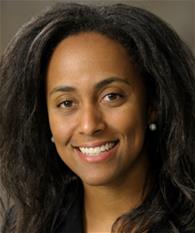EAL Program: Equipping Education Leaders to Excel
by Tom Hanlon / Feb 22, 2019

The University of Illinois’ EAL program prepares future PK-12 principals and superintendents to ensure equitable and high-level learning experiences for all students.
According to Advance Illinois, an independent advocacy organization focusing on equity and quality of education for all children, the state of Illinois ranks 49th in its school funding adequacy and 50th in equity.
The University of Illinois at Urbana-Champaign, through its Educational Administration & Leadership (EAL) Program, is doing its part to improve those numbers—but more so, to improve the quality of education for children in Illinois, and wherever its graduates work.
“Principals have a tremendous impact on student learning and achievement,” says Anjalé (AJ) Welton, an associate professor in the College of Education’s Education Policy, Organization and Leadership (EPOL) department and EAL coordinator. “They develop and support teachers and also make sure the necessary systems are in place to have the culture and climate that supports optimal student learning.”
EAL Offerings
The EAL program is geared to working professionals who have at least two years of successful experience as an educator and who present an array of leadership positions in elementary and secondary education. It offers master’s program courses in Urbana-Champaign and in two Chicagoland sites (at the Illini Center in downtown Chicago and through Oakton Community College in Des Plaines), and it also offers certificates of advanced study for those who want an endorsement to be either a principal or a superintendent. Students can also obtain an EdD or PhD on campus.
“We only offer the principal endorsement program in downtown Chicago at the Illini Center,” says Welton, who has been a professor at Illinois for eight years but is in her first year as coordinator for the EAL program. She succeeds Don Hackmann, an EPOL professor who successfully coordinated the program for more than a dozen years.
The program also offers an online Teacher Leader Specialization that increases teachers’ leadership knowledge and abilities. Teachers can complete this experience 100 percent online and have the opportunity to interact with the course professor and peers through weekly live video sessions.
Maximizing Outcomes for Learners
 All EAL offerings have the same end goal: maximize outcomes for children. With that in mind, the program focuses on equity and social justice—issues that are near and dear to Welton’s heart and form the core of her research.
All EAL offerings have the same end goal: maximize outcomes for children. With that in mind, the program focuses on equity and social justice—issues that are near and dear to Welton’s heart and form the core of her research.
“Those issues of social justice and preparing leaders to be equity-centered are threaded throughout all of our courses,” she says. “School leaders will undoubtedly have to address issues of inequity in their schools, and will have to problem-solve and have tough conversations with teachers, parents, and community members in order to do what’s best and make sure that all kids get equal access to learning opportunities.
“It’s part of our vision and mission to prepare social justice leaders.”
Program Strengths
The Educational Administration & Leadership program has a number of strengths, Welton says. She highlights three:
- The cohort model. “Our students start together as a cohort, take all their classes together, and in the process, they form relationships and a peer network they will have when they’re finished with the program.”
- The faculty. “Unlike many programs, most of our courses are taught by full-time faculty who are well-known scholars in their field. If we do rely on adjuncts, they typically are alumni who know our program well, because they’re a product of us.”
- The outcome. “We bridge theory and research to practice, and in doing so, we produce students who are reflective and critical practitioners.”
Chicago Leadership Collaborative
The Chicago Leadership Collaborative (CLC) was established in 2011 to create a pipeline of highly qualified leaders, partnering with Chicago Public Schools and leading principal development programs. The University of Illinois is one of eight institutions in the collaborative. CLC offers yearlong, paid, internships for principals in Chicago Public Schools.
“For those who do get accepted, it’s an invaluable experience,” Welton says. Students are placed based on their strengths and areas of growth needed and receive coaching and mentoring throughout the year.
This same system works outside of the collaborative, with many students doing their internship at the school where they currently work.
The Future for EAL
Beyond the CLC, the College of Education has a big footprint in Chicagoland, and Welton can envision that footprint growing even larger.
“There is a large enough market in Chicago where there is not program saturation,” Welton says. “So I do see our programs continuing to grow there. And one thing that we offer that perhaps others don’t is our EdD superintendency program, which is known for connecting research, theory, and practice.”
Beyond Chicago, Welton’s dream for the program is to be able to expand the support for its alumni.
“The learning continues beyond the years that we have them,” she says. “It continues in their jobs as principals and superintendents as well. If there is some way that we could continue providing professional development and support for our alums, that would be ideal.”